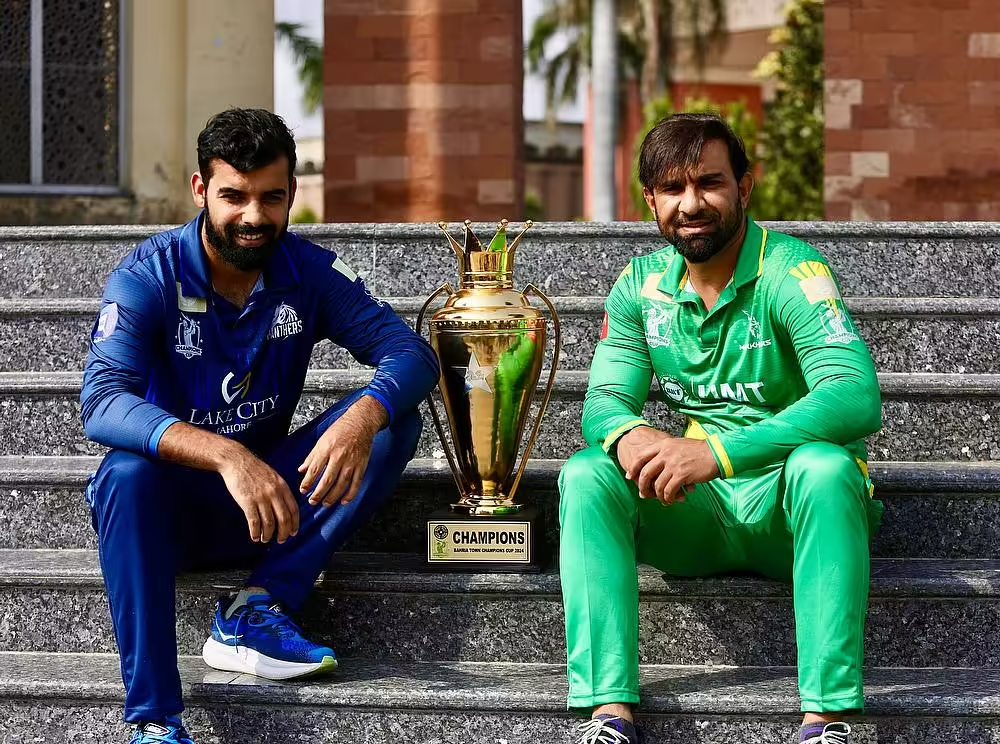The ICC T20 World Cup has commenced, and as part of the pre-tournament excitement, former South African cricket legend AB de Villiers conducted interviews with several prominent cricketers, including Pakistan’s captain, Babar Azam, on his popular YouTube channel. The interviews covered a range of topics, from cricket strategies to personal insights, providing fans with a closer look at their favorite players.
However, a comment made by an Indian user named Hrithik Gaurav on one of these YouTube videos sparked controversy and discussion online. Hrithik mocked Babar Azam’s English-speaking skills, stating, “AB can barely contain his laughter after listening to Babar Azam’s English,” accompanied by a laughing emoji. This comment quickly gained attention, highlighting a frequent and unfortunate focus on language proficiency over the substance of the conversation.
AB de Villiers, known not only for his cricketing prowess but also for his sportsmanship and respect for fellow players, did not let this comment go unaddressed. In a commendable display of support, he responded directly to Hrithik Gaurav’s comment. AB wrote, “Babar’s English is clearly better than my Urdu while his batting ability is superb, and I think it (batting ability) is more important.” This reply by AB de Villiers not only defended Babar Azam but also shifted the focus back to what truly matters: the player’s skill and performance on the cricket field.
The Importance of Language in International Cricket
Cricket, being a global sport, brings together players from diverse linguistic and cultural backgrounds. While English is often used as the common language of communication, it is essential to recognize and respect the linguistic diversity within the cricket community. The focus should ideally be on players’ abilities and contributions to the sport rather than their proficiency in a particular language.
Babar Azam, one of the leading batsmen in the world, has consistently demonstrated his talent and leadership on the cricket field. His batting prowess has earned him accolades and respect from fans and fellow cricketers alike. Despite the occasional criticism of his English, Babar’s performance remains exemplary, underscoring that language proficiency is secondary to cricketing skills.
AB de Villiers’ Support and Its Significance
AB de Villiers’ response to the derogatory comment about Babar Azam’s English is significant for several reasons. Firstly, it reflects the mutual respect and camaraderie that exists among professional cricketers, transcending national and linguistic barriers. By defending Babar, AB highlighted the importance of focusing on the qualities that make a player great—dedication, skill, and sportsmanship.
Secondly, AB’s reply serves as a reminder to fans and the broader cricket community to be more mindful and respectful in their comments. The emphasis should be on celebrating the diversity within the sport and appreciating the contributions of all players, regardless of their linguistic abilities.
Lastly, AB’s response underscores a broader message about humility and respect. Despite being a cricket legend himself, AB acknowledged his own linguistic limitations and praised Babar’s skills, thereby setting a positive example for fans and aspiring cricketers.
The ICC T20 World Cup is a celebration of cricket, bringing together players and fans from around the world. While the focus often extends beyond the cricket field to interviews and media interactions, it is crucial to remember that the core of the sport lies in the players’ abilities and performances.
Babar Azam’s exceptional cricketing talent speaks for itself, and criticisms of his English should not overshadow his achievements. AB de Villiers’ supportive response not only defended Babar but also reinforced the values of respect and sportsmanship that are integral to the spirit of cricket.
As the T20 World Cup progresses, fans are encouraged to focus on the game and the remarkable skills of the players, celebrating the diversity and unity that cricket brings to the world stage. AB de Villiers’ words remind us all that while language may facilitate communication, it is the passion, skill, and sportsmanship that truly define a cricketer’s legacy.



